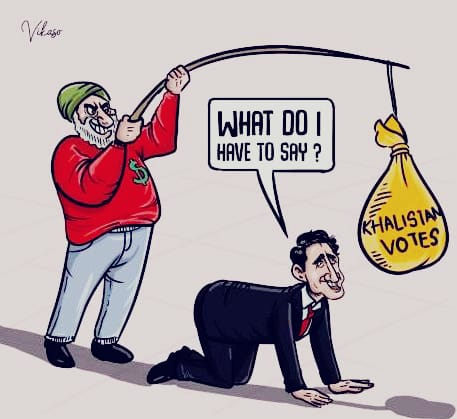Khalistan Quandary: Canada’s Diplomatic Dance

India and Canada’s diplomatic dispute over the killing of Canadian Khalistani activist Hardeep Singh Nijjar has escalated, drawing attention at the UN General Assembly. At the heart of the dispute are allegations by Canadian Prime Minister Justin Trudeau that Indian “government agents” were behind Nijjar’s killing. India has denied these allegations, calling them “baseless” and “unsubstantiated.”
The dispute has had a significant impact on bilateral relations, with both countries expelling each other’s diplomats, suspending people-to-people ties, and stalling trade talks. It has also caused concern among the Indian and Canadian diaspora, who fear that the dispute could lead to a further deterioration in relations between the two countries.
To resolve this situation, it is imperative that Canada provide concrete evidence to support its allegations against India. While India denies involvement in judicial inter-state killings, it is improbable that a leader of a developed country would make such claims without reason. Sharing evidence would necessitate New Delhi’s cooperation in concluding the Canadian investigation.
Both India and Canada have a shared interest in combating terrorism and extremism. However, it is important to do so in a way that respects the sovereignty and territorial integrity of all states. The use of unsubstantiated allegations and inflammatory rhetoric can only serve to further escalate tensions and undermine bilateral relations.
In order to de-escalate the current situation and restore trust between the two countries, it is important for both sides to engage in dialogue and diplomacy. Canada should take the lead in providing evidence to support its allegations, while India should be willing to cooperate with the Canadian investigation. Both countries should also refrain from making further inflammatory statements that could further damage bilateral relations.
